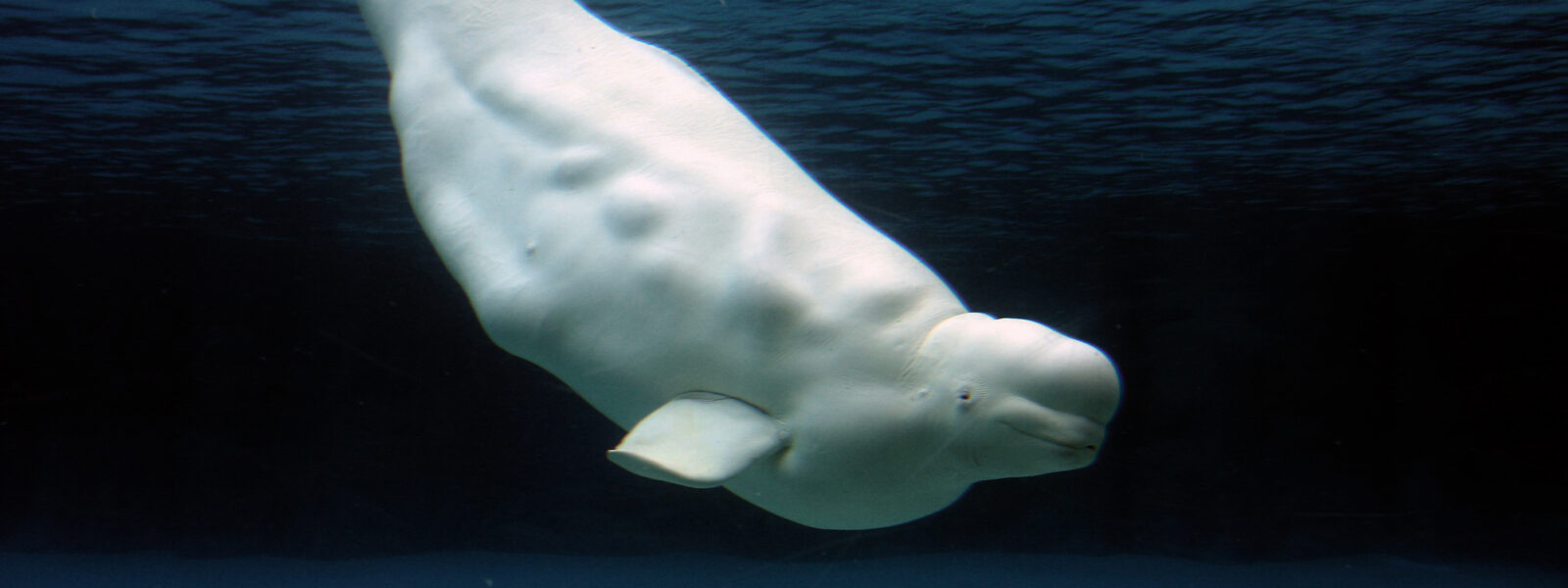
Oppose Mystic Aquarium’s Proposal to Import 5 Belugas
The Mystic Aquarium of Connecticut wants to import five beluga whales from the notorious Marineland aquarium in Canada. The stated purpose is to conduct research on the whales, but the real purpose is to breed the captive whales.
This gets around the new Canadian law that prohibits captive breeding of any cetaceans. Under the new Canadian law, whales and dolphins can be moved from Canada to other countries, but the purpose must be in the interests of the whales. Marineland is not the best aquarium in the world, but having the belugas breed in captivity in the US is the ultimate goal, not beluga whale welfare.
In addition, the five beluga whales would be on public display, but that usually requires a separate permit under the provisions of the Marine Mammal Protection Act. Mystic Aquarium wants to display the beluga whales "incidental" to their research with the whales.
It is unclear what good the research might do the beluga whales in the wild. Any important research could be done at Marineland and other facilities, rather than putting five beluga whales through the stress of transfer to Mystic Aquarium.
Some of the beluga whales may wind up in the Georgia Aquarium, under ill-defined circumstances. In 2014, the Georgia Aquarium, working with Mystic Aquarium and SeaWorld, attempted in to import 18 wild-caught beluga whales from Russia. Opposition to the import from the International Marine Mammal Project (IMMP) of Earth Island Institute and a coalition of environmental and animal welfare organizations led the US National Marine Fisheries Service (NMFS) to deny the permit. NMFS concluded that the beluga population in Russia that was the source of the captives was likely depleted and should not be further depleted by encouraging trafficking in the wild beluga whales. The Georgia Aquarium sued NMFS, and Immp and our coalition of organizations intervened in that litigation. We were successful in the courts in halting the imports.
Now the Georgia Aquarium and the Mystic Aquarium are attempting to get around that legal decision by importing five captive beluga whales from Canada. But the parents of the beluga whales in question were also originally sourced from Russian waters, a population deemed depleted by NMFS and therefore questionable to use for captive purposes. Several of the beluga whales are hybrids born in captivity from Russian beluga whale populations, further undermining claims that the import and research will benefit beluga whales.
The NMFS is evaluating the issues and deciding whether or not to grant an import permit. IMMP is opposing issuance of the permit and insisting that any import from Canada comply with the new Canadian ban on breeding beluga whales and other cetaceans in captivity. We are working closely with lawyers on this issue.
Beluga whales belong in the ocean, not in captivity in small concrete tanks. Breeding more beluga whales just compounds the problem – captive-bred cetaceans cannot be released, but are ill suited for a restricted life in captivity.
The best place to house captive-bred beluga whales and other cetaceans is in spacious seaside sanctuaries, where the belugas can have a semblance of natural life, while they are still fed and receive medical care. The first such beluga sanctuary has been established in Iceland, where two beluga whales from a Chinese aquarium have been retired.
WHAT YOU CAN DO:
Please file a comment with the National Marine Fisheries Service (NMFS) at this link: https://www.regulations.gov/docket?D=NOAA-NMFS-2019-0113
Urge NMFS to:
(1) Deny the importation permit for 5 beluga whales submitted by the Mystic Aquarium. The research proposed can be conducted by other means less stressful than moving five whales from Canada to the US, and is unlikely to benefit wild beluga whales.
(2) Any importation should, in keeping with current Canadian law, ban breeding of the beluga whales. The current population of captive cetaceans in the US should be the last. Cetacean captivity should be phased out. Beluga whales and dolphins bred in captivity cannot be released to the wild. The only reason to breed them is to supply cetaceans to captive facilities, where they will languish in unhealthy environments.
DEADLINE for Comments is December 2nd, 2019.
NMFS will hold a public hearing for this permit application on: November 18, 2019; 1 to 3 p.m. (local time) , at Silver Spring Civic Center (Great Hall, located on the 1st floor), 1 Veterans Place, Silver Spring, Maryland, 20910. Canadian speakers are welcome.
Please donate to the International Marine Mammal Project of Earth Island Institute to oppose the captivity of beluga whales and other whales and dolphins around the world. These magnificent animals belong in the ocean, not in small concrete tanks doing tricks for the public. Thank you!
